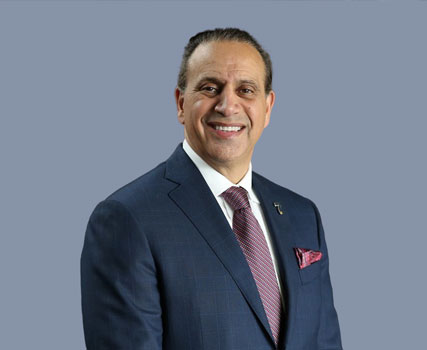Questions & Answers About Accident & Injury Claims
What types of injuries do Rideshare Attorneys handle?
*Whiplash and Soft Tissue Injuries: These occur from sudden movements during a crash, causing strain or damage to muscles, tendons, or ligaments.
*Broken Bones and Fractures: High-impact crashes can lead to broken or fractured bones, which can be especially serious in cases involving limbs or ribs.
*Head and Traumatic Brain Injuries (TBIs): These can range from concussions to severe brain trauma, particularly if the victim’s head strikes part of the vehicle during the accident.
*Spinal Cord Injuries and Paralysis: These injuries can be life-altering, potentially resulting in partial or complete paralysis.
*Cuts and Lacerations: Shattered glass or sharp metal can cause cuts that range from minor to severe, sometimes requiring stitches or surgery.
*Internal Injuries: These are especially dangerous because they may not be immediately visible and can involve damage to vital organs.
*Psychological Trauma: Accidents can lead to lasting emotional effects like anxiety, PTSD, or depression, particularly in serious or fatal collisions.
It's important to seek immediate medical attention after any rideshare accident, as some injuries may not be immediately apparent.
In a Rideshare Accident, who can sue? The passenger or the driver?
Passenger's Rights: Passengers injured in an Uber or Lyft accident generally have a strong ability to sue for damages. Both Uber and Lyft provide insurance coverage for passengers during active rides, and this coverage can be a key source of compensation for injuries.
Driver's Rights: If the driver was actively engaged in a rideshare trip or en route to pick up a passenger, Uber and Lyft’s insurance policies typically cover damages sustained in the accident.
Negligence and Liability: The ability to sue Uber or Lyft directly may depend on proving that the company was negligent in some way — such as failing to properly vet drivers or not enforcing vehicle safety standards.
Local Laws and Regulations: The legal rules governing rideshare companies vary by location, so the ability to sue — and the likelihood of success — can depend heavily on state or municipal laws and prior court rulings involving rideshare services.
Insurance Policies: The rideshare company’s insurance coverage, along with the personal insurance policies of the drivers and passengers, plays a major role in determining who can sue and what types of damages may be recovered.
It’s advisable for both drivers and passengers to speak with a legal expert experienced in rideshare accident cases to understand their rights and evaluate the potential strength of a lawsuit against Uber or Lyft.
What insurance policies cover an Uber or Lyft accident?
1. When the App is Off: If the rideshare driver's app is off and they are not accepting rides, their personal auto insurance is the primary coverage.
2. App On, No Passenger: When the driver has the app on and is waiting for a ride request, both Uber and Lyft provide contingent liability coverage. This typically includes:
- Bodily injury: Up to $50,000 per person
- Total injury liability: Up to $100,000 per accident
- Property damage: Up to $25,000 per accident
3. En Route to Pick Up a Passenger or During a Trip: When the driver is en route to pick up a passenger or during a trip, Uber and Lyft provide a $1 million liability coverage policy, which includes:
- $1 million in third-party liability
- Uninsured/underinsured motorist bodily injury
- Contingent comprehensive and collision coverage, which applies to the driver’s vehicle for damages, subject to a deductible.
These policies are designed to ensure that passengers, drivers, and third parties affected by a rideshare accident have access to compensation for injuries and damages. However, coverage details can vary and are subject to change, so it’s important to review the latest policy information directly from Uber or Lyft. Additionally, the interaction between these policies and personal insurance can be complex — it’s often best to consult with the top injury law firms following a rideshare accident.
What Should I Do Immediately After an Uber/Lyft Accident?
How Do I File a Claim for a Rideshare Accident?
Can I Sue Uber or Lyft for Injuries Sustained in an Accident?
How Long Do I Have to File a Lawsuit After a Rideshare Accident?
What Compensation Can I Receive from a Rideshare Accident Lawsuit?
1. Medical Expenses: This can cover both current and future medical costs related to injuries sustained in the accident. It includes hospital bills, costs of surgery, medication, physical therapy, and any long-term healthcare needs.
2. Lost Wages and Earning Capacity: If the injury has caused you to miss work, you can claim compensation for lost wages. Additionally, if your injuries impact your ability to work in the future, you may be entitled to compensation for lost earning capacity.
3. Pain and Suffering: This non-economic damage compensates for the physical pain and emotional distress caused by the accident. It includes compensation for any long-term physical discomfort, mental anguish, stress, and overall reduction in quality of life.
4. Property Damage: If the accident resulted in damage to your personal belongings, including your vehicle, you can seek compensation for repair or replacement costs.
5. Punitive Damages: In cases where the defendant's conduct is found to be particularly reckless or negligent, the court may award punitive damages. These are intended to punish the wrongdoer and deter similar behavior in the future.
6. Wrongful Death: In tragic circumstances where a rideshare accident leads to a fatality, the victim's family may be entitled to wrongful death damages. These can include funeral and burial expenses, loss of companionship, and loss of the deceased's expected income.
7. Rehabilitation Costs: For serious injuries requiring rehabilitation, compensation can include the costs of rehabilitative therapy and adaptive devices needed for recovery.
8. Out-of-Pocket Expenses: You can also claim for any out-of-pocket expenses related to the accident. This includes travel costs to medical appointments, cost of hiring help for household chores, and any other expenses incurred due to the injury.
It’s important to work with a skilled attorney who focuses on rideshare accident cases to ensure all potential areas of compensation are properly identified, documented, and pursued. An experienced rideshare lawyer near Ohio can negotiate with insurance companies and fight for the maximum compensation you’re entitled to.
How Are Uber/Lyft Sexual Assault Lawsuits Handled?
Due to the sensitive nature of these cases, confidentiality is often a critical concern for victims. It’s essential to work with an attorney who has experience handling rideshare sexual assault cases and who understands how to navigate the legal process with care, discretion, and compassion to ensure proper representation and support.
Why is it important to consult with an Uber/Lyft lawyer if I was injured in an accident?
1. Understanding Complex Legal and Insurance Frameworks: Uber and Lyft accidents involve navigating complex legal and insurance frameworks that differ significantly from standard auto accidents. A lawyer understands these nuances and can effectively maneuver through them.
2. Expertise in Rideshare Laws: Rideshare laws and regulations can vary significantly by state and city. A lawyer experienced in this field will be up-to-date with the current laws and how they apply to your case, ensuring that all legal aspects are properly addressed.
3. Dealing with Multiple Parties: Rideshare accidents often involve multiple parties - the rideshare company, the driver, other drivers, and insurance companies. A lawyer can manage communications and negotiations with all these parties, protecting your interests.
4. Maximizing Compensation: An experienced lawyer can accurately assess the full extent of your damages - including medical expenses, lost wages, pain and suffering, and more - and fight to ensure you receive fair compensation. They know how to build a strong case to support your claim.
5. Negotiating with Insurance Companies: Insurance companies often attempt to minimize payouts. A lawyer with experience in rideshare accidents knows the tactics these companies use and how to negotiate effectively to resist lowball offers.
6. Handling Complex Liability Issues: Determining liability in rideshare accidents can be complex, especially with issues like driver status (whether they were logged into the app, waiting for a ride, etc.). A lawyer can navigate these intricacies to establish liability.
7. Representation in Court: If your case goes to court, having a lawyer with specific expertise in rideshare accidents is invaluable. They can provide robust representation, ensuring that your case is presented effectively and your rights are protected.
8. Saving Time and Reducing Stress: Dealing with the aftermath of an accident can be time-consuming and stressful. A lawyer can handle the legal aspects, allowing you to focus on recovery.
In summary, an Uber/Lyft accident lawyer brings valuable knowledge and experience to your case, ensuring that all legal avenues are thoroughly explored and your rights are fully protected. They play a critical role in pursuing fair compensation and guiding you through the complexities of the legal process following a rideshare accident.
Who is responsible for my injuries as a passenger in a rideshare accident involving Uber or Lyft?
Elite reviews
Editorially researched Highlights pros & cons
-
Morgan & Morgan
Read review -
Alexander Shunnarah
Read review -
Turnbull Law Firm
Read Review






















